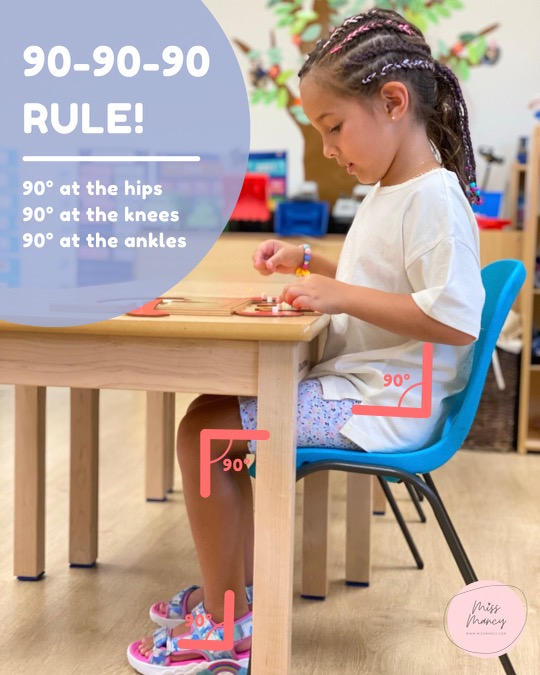Importance of Sitting Posture

Start with Stability
In therapy we talk about the 90-90-90 rule. This means that when seated at a desk, we want to ensure the following:
- Feet flat on the floor 90 degrees at ankles
- Knees bent at 90 degrees
- Hips at 90 degrees
The top of the desk should be approximately 2 inches above the elbows when the arms are bent at the student’s side. This will ensure that the child’s neck, shoulders, arms, hands and fingers are relaxed.
If the table top is too high: a child will prop his elbows up and out, hike up his shoulders and possibly lean his body against the desk.
If the table is too low: a child will slouch and lean his body on the table.
Both scenarios affect the efficiency of handwriting (because now your child has to use his energy to stabilize himself instead of using that energy to focus on the task at hand).
To help your child sit correctly, table legs can be adjusted as well as the height of the chair. You can also use a wedge on the chair to encourage proper sitting posture. I like this one by Movin’sit because one side is smooth and the other is bumpy which gives nice tactile input to children who have a tendency to wiggle in their chairs; just enough wiggle with tactile input without having to disturb the entire classroom.
Share this post
You may also like...

Hi, I 'm Nancy
I’m an Occupational Therapist (OT) with more than 18 years of experience and whose greatest passion is working with children of all abilities.
Follow on Instagram
@missmancyinc




